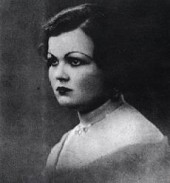Rembetika / Rembetises
V
Location:
CHULA VISTA, California, US
Type:
Artist / Band / Musician
Genre:
Blues / Other / Folk
Rembetika originated in Tekes (a Greek word for hashish dens) and jails scattered around the main Greek cities in the early part of this century. The music was based primarily on an oral tradition where the art of improvisation was of the utmost importance.
The lyrics of Rembetica songs dealt with the life of an Greek Urban sub-culture whose norms were outside the mainstream of Society. The Rembetes had an inherent distrust of any authority and the music was their way of expressing thier creativity and independence.
Like the early Blues, Rembetika songs of the 1930s and 1940s have a sense of spontaneity, making them appear fresh after countless hearings despite the many years since they were recorded. They also have the power to move, excite, inspire and involve the listener.
Many of the songs were banned in Greece, chiefly because of their anti-authoritarian, non-conformist stance. Police, led by the notorious chief Baraktaris, raided hash dens, smashed instruments, arrested harrassed and assaulted the rembetes.
The people who formed this sub-culture were, in the main, what Greeks called "manges", which can be loosely translated as "wide-boys". They used an elaborate form of slang and dressed extravagantly - much the same as the Jazz/Blues subculture in Harlem in the 1920s and 1930s. Although the Rembetes suffered police harrassment and repression, they were not submissive, and did not lose their identity or sense of humour.
Cafe-amans
Rembetika music didn't only originate in hash-dens and jails, although this is where the main inspiration came from. Around the turn of the century "cafe-amans" sprang up in Smyrna, Constantinople, and other ports in Western Asia Minor. In these cafes a singer would sing an improvised verse using the words "aman aman" while they thought of new words to improvise. Recordings of amanedes from the 1930s typically feature a four line verse stretched over 3 minutes or so. They are very difficult to sing and are rarely attempted today. The word "aman" is of Turkish origin meaning "mercy" and is used as an exclamation. These were often accompanied by one or two instruments played between the verses. A "taxim" (solo instrumental) usually sets the mood at the beginning of each amane.
The burning of Smyrna 1922
In late August 1922, after three years of campaigns, the Greek front in Anatolia collapsed. The Army was swiftly evacuated. In September 1922, the ruler of Turkey, Mustapha Kemal Ataturk led his troops into Smyrna, a predominantly Christian city, and the troops proceeded to indulge in pillage, rape and slaughter. The city was then set on fire and totally destroyed. The allies - including three American destroyers nearby - refused to intervene as they wanted to protect their oil and trade interests (according to the excellent thoroughly researched best selling book "Smyrna 1922" by Marjorie Housepian Dobkin).
A million and a half Greeks were expelled to mainland Greece - mainly to Athens and Piraeus, in exchange for the Muslim population of Greece; effectively ending two millenia of Greek civilisation on the Anatolian mainland. The refugees brought to Greece the finest exponents of an oriental style of music with Turkish and Arabic influence called Smyrnaika. Smyrnaic music usually featured the violin, accordion, lauto (oud), santouri, but not the bouzouki.
From 1922 on, the Smyrnaika school had a strong and long lasting influence on the Rembetika style. The Smyrnaic music quickly became popular in the cafe-amans. The refugees themselves were living in poverty mainly in shanty towns. Some of them became part of the Rembetika sub-culture as they also felt outside of the mainstream of society due not only to their living conditions, but also because they were resented by the bulk of native Greeks.
Layout Created at KillerKiwi.net
Copyright © BANDMINE // All Right Reserved
